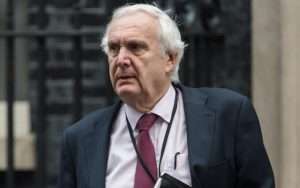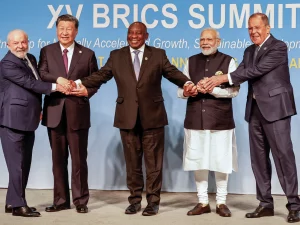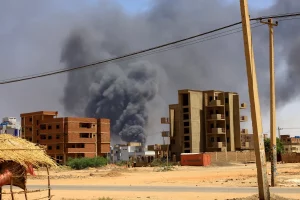Declan Hayes: Could Tunisia become the next Libya?

Concerns about the low turnout in and the outcome of Tunisia’s recent elections miss the mark. Although not even 9% of the electorate bothered to vote, that is neither an issue nor a problem. Because U.S. State Department spokesman Ned Price gave the results NATO’s imprimatur when he declared that the entire farce had been “an essential initial step toward restoring the country’s democratic trajectory” and, though he didn’t say it in so many words, it is the trajectory of Tunisia’s march to “democracy”, rather than the number of those who endorse it that counts.
Although the result consolidates Tunisian President Kais Saied‘s near-absolute power, that too is irrelevant, as we are not speaking of the late Muammar Gaddafi in next-door Libya but of Tunisia, which President Saied is keeping snuggled well within NATO’s arm pits.
Although the last 30 months has seen Saied fire the elected government, suspend parliament, hobble the independent judiciary, seize control of the election commission, muzzle the media and jail political opponents, there is nothing to get alarmed or protest about in any of that, as Saied is our guy, NATO’s guy.
Although the Democratic Republic of the Congo, Gabon, Liberia, Nigeria, Madagascar, and Sierra Leone all have elections scheduled this year, their leaders can follow President Saied’s template to victory if and only if they are our guys, NATO’s guys.
Election results, whether they be in Tunisia or anywhere else, depend on whether they serve NATO’s interests or not. Using that metric, the modalities and results in Venezuela, Nicaragua, Syria and Gaza matter and those in Tunisia do not.

Hafed Al-Ghwell: What kind of reset for Tunisia? READ
In practical terms, it means the U.S. will not veto Tunisia’s pending $1.9 billion IMF loan as long as Tunisia plays by NATO’s playbook. Should President Saied stray off the reservation, off the trajectory NATO has set for Tunisia then, as next-door Libya and many other countries can attest there will be consequences.
Currently, Tunisia is teacher’s pet. Women play an active part at all levels of society, Parliament included, there is a nascent green energy sector, the defence forces are apolitical and Tunisia is entwined with the EU through the European Union’s European Neighbourhood Policy (ENP), which aims at bringing the EU and its neighbours “closer” but not, of course, too close.
True, participation rates in elections could be higher and corruption is rife but so are the many opportunities for NATO’s pet companies the ongoing privatisation of Tunisia’s economy presents.
As regards the low turnout, look no further than the CIA’s Brookings Institute which explains why the opposition boycotted the poll and why President Saied’s supporters stayed at home. Although the Brookings Institute earlier hinted that NATO might resort to roughing up Tunisia because of President Saied’s power grab, because that is unlikely and currently unnecessary, Brookings should go easy on its threats as Tunisia is in safe hands, NATO’s hands.
Should Tunisia’s democratic trajectory go off course, there is always the threat of renewed Islamic violence and a revamped and repackaged colour revolution to make the necessary adjustments to its flight path.
There are, for example, at least 111 British NGOs fighting the good fight to improve Tunisia’s civil society. Though these and some 19,000 more NGOs were formed with the protection of the now threatened Decree 88, Tunisia boasts a vibrant civil society network NATO and Tunisia’s own democrat champions can mobilise should the need become urgent. As long as President Saied keeps Tunisia on NATO’s trajectory, there is no need for such theatrics.












